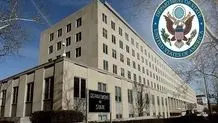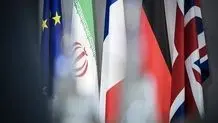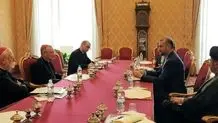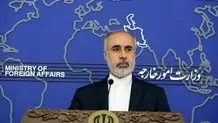President Raeisi:
US must take trust-building measures amid JCPOA revival talks
Iranian President Ebrahim Raeisi says "the US has to take trust-building measures" amid the ongoing negotiations over the restoration of the 2015 nuclear deal.
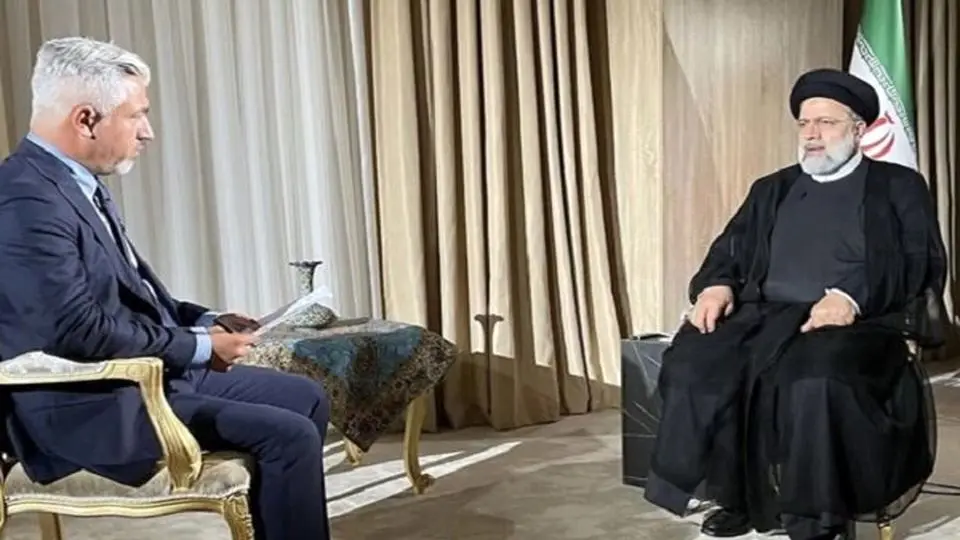
MEHR: Iranian President Ebrahim Raeisi says "the US has to take trust-building measures" amid the ongoing negotiations over the restoration of the 2015 nuclear deal.
Speaking in an interview with Qatar's Al Jazeera television network on Thursday, Iranian President Ebrahim Raeisi made some remarks.
When asked about the potential of direct talks between Iran and the United States over the deal, he said, "Direct talks with the US over the nuclear agreement is of no avail."
The deal, officially known as the Joint Comprehensive Plan of Action (JCPOA), came about in Vienna following marathon direct negotiations between Iran and the P5+1 group of countries that comprised the US, the UK, France, Russia, and China plus Germany.
Upon conclusion, the JCPOA was hailed by the United Nations and the European Union, which coordinated the talks, as a pillar of regional and international peace and security.
The US, however, left the deal in 2018 and returned the sanctions that the accord had lifted. In doing so, Washington violated the deal's multilateral nature and the fact that the UN Security Council has ratified it in the form of a resolution.
Raeisi also censured a raft of new sanctions that Washington has imposed on Iran, asking, "If Washington is after an agreement, why does it apply new sanctions during the course of the nuclear talks?"
"We are determined to put up a decisive defense of Iran's and its people's rights" during the negotiations," he noted.
He added potential fresh removal of the American sanctions has to be accompanied by relevant "guarantees."
Iranian officials have, time and again, asserted that upon potentially lifting the sanctions, Washington should be able to guarantee that it would not return the bans again.
Elsewhere in his remarks, the president insisted that for the talks to move on, the "safeguard issues" between Iran and the UN nuclear watchdog, the International Atomic Energy Agency (IAEA), have to be resolved.
Raeisi also said the West has to ask the Israeli regime to stop its nuclear weapon program instead of picking on Iran over its peaceful nuclear activities.
"Before asking us to stop our nuclear activities, the West has to make this demand on the Zionist regime that owns weapons of mass murder," he stated.
On Iran, Saudi Arabia talks
Raeisi, meanwhile, touched on ongoing talks between Iran and Saudi Arabia that seek to mend the differences between the two sides.
"Talks with Saudi Arabia continue. We have held five rounds of talks and will continue to hold more," the president said.
Addressing Iraq's drawn-out failure to form a government, Raeisi said, "We would be delighted to witness [formation of] a strong government in Iraq."
Raeisi said European countries had approached the Islamic Republic concerning the Iraqi crisis, saying, "We told them that this issue concerns the Iraqis."
The Iranian president also said, "The region's problems would be solvable if foreign forces stopped their interference [in the regional affairs]," adding, "The Iraqis should not allow the Americans' presence [in their country]."
Yemen ceasefire
The Iranian president finally addressed the issue of an April-present ceasefire in Yemen.
The truce has been almost holding, despite sporadic violations by a Saudi Arabia-led coalition, which began waging a war on the Arab world's poorest nation in March 2015.
President Raeisi said in order for the truce to enter a permanent state, the coalition had to lift a siege that it has been employing against Yemen since the onset of the invasion.
آخرین اخبار Iran را از طریق این لینک پیگیری کنید.

